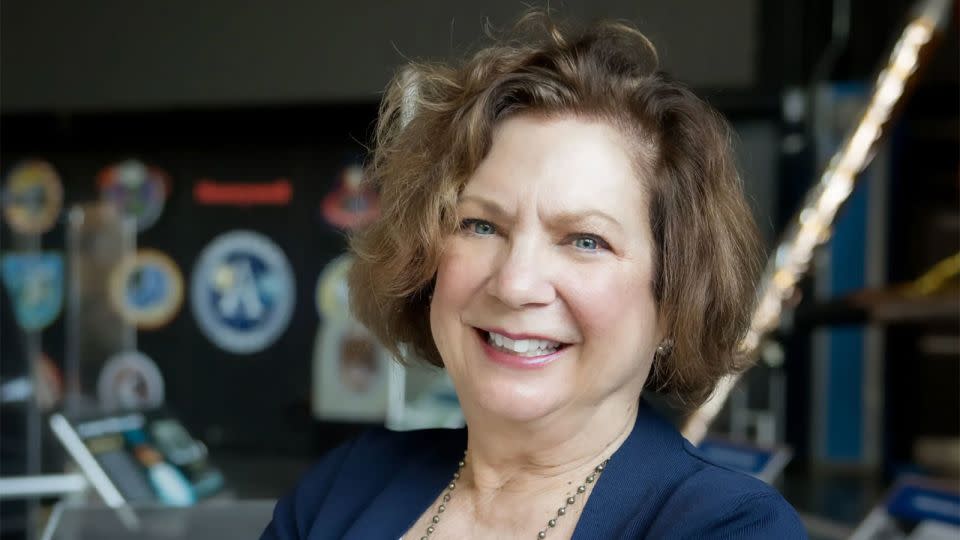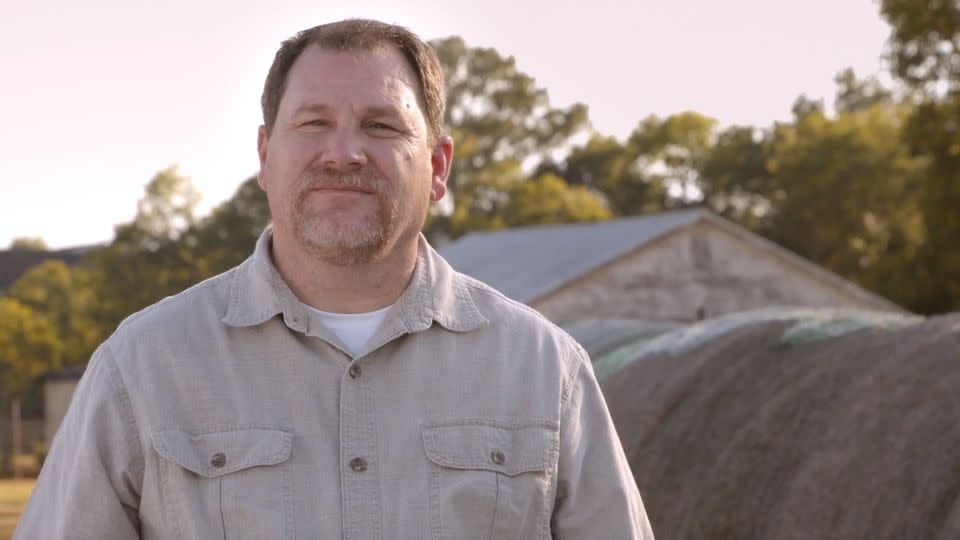Democrats elevate reproductive rights in Alabama special election amid fallout over IVF ruling
A month after an Alabama Supreme Court ruling thrust in vitro fertilization treatment into the national spotlight, Democrats are looking at a special state House election here on Tuesday for signs of how strong abortion rights resonate with voters in a red state with some of the most restrictive laws in the country.
Marilyn Lands, a Democrat who lost by nearly 7 points when she ran in 2022, is an eager test case: she has made reproductive rights a central issue in her campaign, particularly in her ads.
In one clip, Lands and a young woman, Alyssa Gonzales, share the stories of the abortions they received after learning their fetuses tested positive for severe genetic conditions.
About 20 years ago, under Roe v. Wade, Lands was able to be treated in-state by her doctor. But months after the Supreme Court’s Dobbs v. Jackson Women’s Health Organization decision, Gonzales had to seek the help of an abortion fund to travel out of state.
“As a woman, we’ve seen so much over the years. We’ve seen things change with pay becoming somewhat more equal, with the kind of harassment that we used to deal with being not so common,” Lands said. “But to see us now take a giant step backwards? I just can’t understand.”
The race will not change control of the Alabama state House: Republicans hold super majorities in both chambers of the legislature. Teddy Powell, the Republican candidate and a two-term Madison city councilmember, is betting voters will choose a candidate who has emphasized local issues like infrastructure spending over sending a message to Montgomery on abortion.
But if Lands wins, it would be another data point for national Democrats who hope the backlash over draconian abortion laws will help them flip control of the US House, hold the US Senate and reelect President Joe Biden.
Alabama became one of just over a dozen states that bans abortion in nearly all circumstances, with no exceptions for victims of rape or incest, when its trigger law went into effect after Roe v. Wade was overturned.
A rare competitive seat
Located just outside downtown Huntsville, House District 10 is a suburban seat that is home to the Redstone Arsenal US Army base and the NASA’s Marshall Space Flight Center. Voters there embraced both Republicans and Democrats in recent years, and both campaigns see the seat as competitive.
The seat was held by Republican former state Rep. David Cole, who resigned last year after he pleaded guilty to committing election fraud by voting in the district he represented despite not living there.
The special election took a turn last month, when the Alabama state Supreme Court ruled that frozen embryos stored in a lab are considered people. The ruling came after families whose embryos were destroyed by accident filed a wrongful death of a minor suit against their clinic.
Though the ruling didn’t prohibit IVF, it made clinics liable in wrongful death lawsuits involving embryos, which led several to stop treatments of patients. The state legislature moved quickly to pass legislation to shield providers and patients from criminal or civil liability, and Republican Gov. Kay Ivey signed the bill earlier this month.
Abortion rights advocates say that the legal battle over IVF is just one way that restrictive abortion laws, including those that state life begins at conception or grant personhood to fetuses, can have broad consequences. On a national level, Democrats have gone after Republicans in purple districts who co-sponsored the US House version of the Life at Conception Act, which doesn’t include a carve out for IVF treatment.

“We see this as a race that will help show where the electorate is after this really horrific IVF ruling, even in GOP controlled states like Alabama, and how IVF is resonating as an issue across all states as we move into November,” said Heather Williams, the president of the Democratic Legislative Campaign Committee, which works to elect Democrats to statehouse seats.
The DLCC named Lands as one of its “spotlight” candidates in January and has been providing fundraising and organizational support to her campaign.
The Republican State Leadership Committee, which helps elect GOP candidates in state level races, has been in contact with the Powell campaign, said his campaign consultant Dalton Dismukes. The RSLC did not respond to requests for comment.
A focus on the economy
Powell’s campaign has argued voters won’t cast their ballots solely based on abortion, which they view as a separate issue from IVF.
“I don’t think that this is a one issue district,” Dismukes said. “I don’t think any district in Alabama is a one issue district.”
Powell, who has focused his campaign on education, infrastructure and economic development, told CNN he believes the state legislature took care of the concerns around IVF with the legislation enacted earlier this month.
On abortion, Powell said the state’s laws were an issue and he might be “open to looking” at laws that added exceptions for rape and incest.
“I understand that’s not something that Republicans are comfortable talking about,” he said of abortion. “And quite honestly, it’s not something I’m greatly comfortable talking about, because I’m not a woman, and I am a man, and I understand that that, it is a woman’s issue, or it’s been turned into that.”
He added, “The reality is it’s something that we need to address.”
Still, Powell maintained that the special election is ultimately a race about local issues, despite Lands’ efforts to reflect national trends, and that most voters are not primarily motivated or affected by abortion or reproductive issues.

“At some point, she has to recognize that she’s running in this district and representing these people,” he said. “She’s running for the state house of Alabama, not Congress, and she needs to focus on those issues.”
Lands’ platform also addresses health care and education, and she has acknowledged voters care about multiple issues. But reproductive rights issues are a major motivator, she said.
“There are other issues that are on people’s minds and that they want to talk about,” she said. “But this issue, I think, is what’s going to propel people out to vote.”
Lands has also tapped her roots in the community to reach across the aisle. Two of her former neighbors, self-described Reagan Republicans Rosemary and Earl Finley, have appeared on a postcard backing her. While they disagree with Lands on some issues, the state’s abortion law isn’t one of them.
“As a Republican voter, I disagree with the Supreme Court and this state outlawing abortion under any circumstances,” Earl said. “When you talk about particularly rape, incest and basically the health of the mother – those are important things to me.”
As with any special election, turnout will be low and the result will come down to which candidate’s supporters show up. Both campaigns spent time knocking on doors ahead of the vote Tuesday.
After Powell knocked on his door, Anthony Franks, a voter in the district, said he plans to support him because he represents his conservative values.
Franks said the Democratic strategy of running on abortion is a “flawed” strategy, and said he would only support someone seeking treatment in cases of rape or incest.
“The entire reproductive rights shouldn’t be politicized like this,” he said. “I think everybody has a right to choose, but we also have to think about the moral issues with it as well.”
Teresa Terrell said she plans to vote for Lands because of her focus on women’s issues, and the direct approach she’s taken to talking about reproductive rights.
“I have granddaughters,” Terrell said. “I’m concerned about their future and I’d like to see someone who’s caring about not only the present generation but future generations.”
CNN’s Maxine Tamsett contributed to this report.
For more CNN news and newsletters create an account at CNN.com


